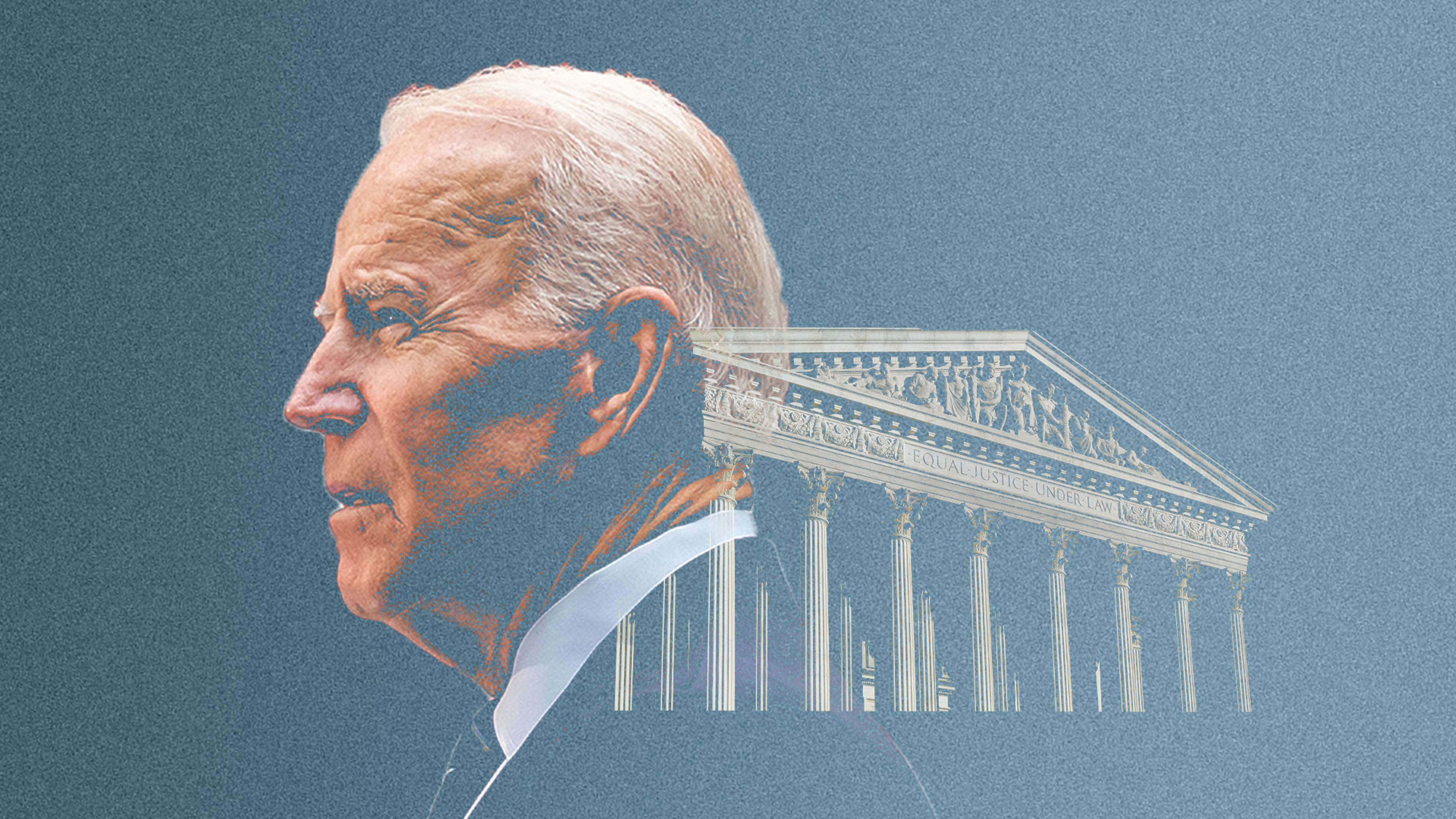Tomorrow, the Supreme Court will take up challenges to President Biden’s workplace vaccine mandates, which affect some 100 million U.S. workers. The first measure is the one most people think of when this topic comes up: the executive order requiring large private employers to set a company-wide vaccination requirement or impose a masking and weekly testing regimen on unvaccinated workers. The second measure, lesser known, applies only to healthcare workers at facilities that receive a certain type of federal funding.
The U.S. government has never required companies to adhere to a vaccine-or-test policy before. The Biden administration argues that its authority, via the Occupational Safety and Health Administration regulatory agency (OSHA), to issue emergency rules to protect American workers from “substances or agents determined to be toxic or physically harmful or from new hazards” is broad enough to include the coronavirus. But many conservatives are dubious that federal power is actually meant to extend this far—to justify a mandate affecting some 84 million workers—and want the rules reined back in.
The administration had originally intended for them to go into effect this week but recently extended the deadline to February 9, partly to accommodate the ongoing legal uncertainty. It has been confusing to keep things straight in court; in November one federal appeals court blocked Biden’s mandate, saying it sees “grave statutory and constitutional issues” with it. Then, last month, a different appeals court dissolved the first court’s stay, declaring that the mandate was actually fine.
The second case is about the separate federal vaccine mandate that covers more than 17 million healthcare workers. It’s being issued through another agency—the HHS’s Centers for Medicare and Medicaid Services. HHS is requiring all facilities that accept this agency’s funding to comply (which turns out to be most of the country’s facilities, numbering more than 75,000). Opponents argue Congress is the only governmental body with authority to OK a mandate like this, and that it was fast-tracked, anyway; meaning, it hadn’t gone through the proper vetting channels in Biden’s HHS. Lower courts have blocked the mandate in about half the states, but the government says it’s ready to start implementing it in the others later this month.
Both matters come before the court on an emergency basis. Departing from standard procedures, the Supreme Court will technically be hearing arguments on cases that haven’t been fully decided yet by the lower courts. The justices—all nine of whom are vaccinated and boosted, according to the court—won’t be addressing if Biden’s vaccine rules are “lawful.” Rather, they’ll merely be determining if the government can begin implementing the mandates before the lawsuits challenging them are resolved. Regardless, expect the conservative majority to ask the Justice Department to defend how the administration has stayed within the boundaries of the laws it’s using to authorize these mandates.
How the justices rule will ultimately determine if the administration’s strategy for ending a pandemic that’s killed almost 1 million Americans must be rethought. Most Americans have already chosen to get vaccinated, but Biden has said these numbers aren’t high enough. The White House’s plan hinges on the idea that mass inoculation across all workplaces is the best way of beating COVID. “Too many people remain unvaccinated for us to get out of this pandemic for good,” Biden said in November when he announced the mandates.
Recognize your brand’s excellence by applying to this year’s Brands That Matter Awards before the early-rate deadline, May 3.
